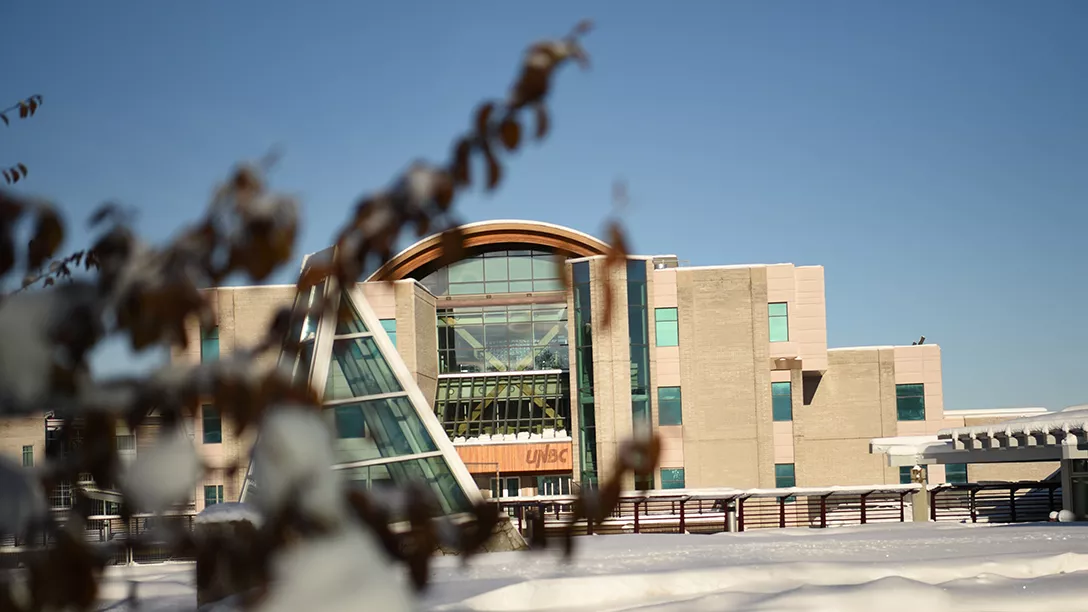UNBC places first in research income growth
In 2019, UNBC's research income increased by 42.5 per cent, the largest increase of any university in the undergraduate tier in the latest edition of Canada's Top 50 Research Universities. UNBC also saw its overall ranking increase and moved up places in two categories related to research intensity.

Prince George, B.C. – The University of Northern British Columbia saw its research income increase the most of any university of its size in the latest edition of Canada’s Top 50 Research Universities produced by Research Infosource Inc.
UNBC received $12.9 million in research income in the 2019 fiscal year, a 42.5 per cent increase from 2018. It is the largest increase of any university in the undergraduate tier. The nearly $4 million increase helped UNBC jump four spots in the overall ranking to 42nd in Canada, the University’s highest ranking in seven years.
“Through exploration, innovation and partnerships, UNBC researchers continue to make discoveries that advance our knowledge, making significant positive impacts to our society,” says Interim President Dr. Geoff Payne. “The substantial increase in research funding this year is further confirmation of the excellence of our faculty, students and staff who work together to cultivate a pre-eminent research culture.”
UNBC also moved up the undergraduate tier table in two categories related to research intensity. In the research dollars per faculty metric, UNBC moved up two spots into seventh place earning $66,000 in income per faculty member. With $21,400 in research income per graduate student, UNBC moved up three spots into ninth place.
Last year, UNBC placed first in corporate-sponsored research income growth and once again, UNBC saw a significant increase in that metric. UNBC’s corporate-sponsored research in 2019 was $585,000, a further 29.4 per cent increase from 2018.
“UNBC is committed to being a leader in the integration of research and teaching,” says UNBC Acting Vice-President, Research Dr. Kathy Lewis. “In addition to being innovation scholars, our faculty also foster a highly stimulating research environment for our students at both the undergraduate and graduate level.”
Some of the research highlights from the past year include:
- The Centre for Technology Adoption for Aging in the North, a new AGE-WELL National Innovation Hub, opened at UNBC.
- The NSERC/Rio Tinto Industrial Research Chair on Climate Change and Water Security partnership celebrated its first anniversary. Environmental Science Professor Dr. Stephen Déry provided an update on the project’s progress.
- Dr. Jianbing Li, an Environmental Engineering Professor at UNBC is leading part of a national project to investigate improved methods to separate oil from water to make it more efficient and less costly to clean up marine oil spills. Fisheries and Oceans Canada pledged $1.9 million to fund the next stage of Li’s research through the multi-partner oil spill research initiative.
- UNBC researchers received more than $1.3 million in funding from the Natural Sciences and Engineering Research Council’s Discovery Grant program and the Social Sciences and Humanities Research Council Insight Grant program.